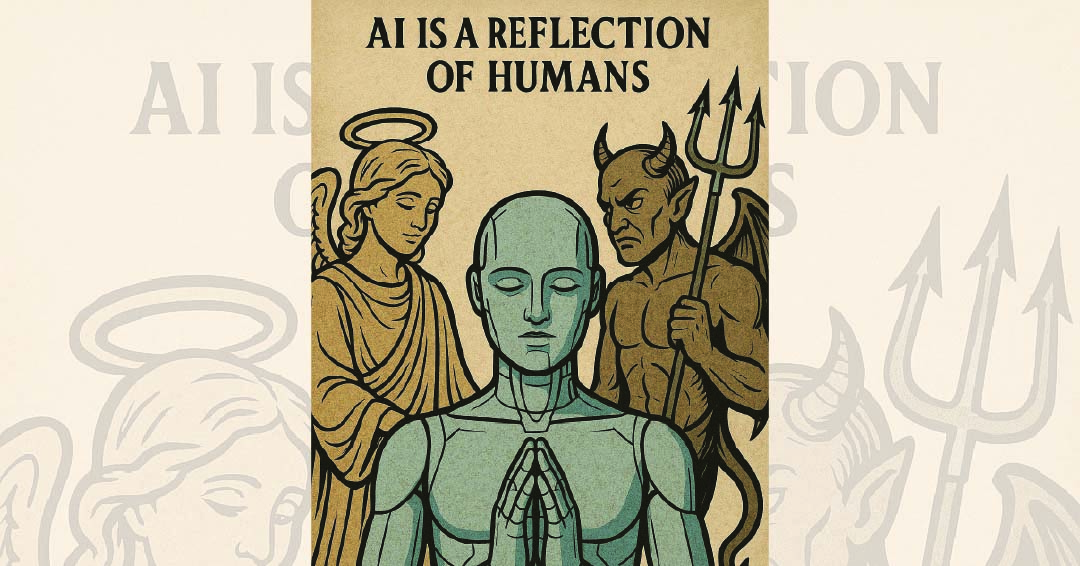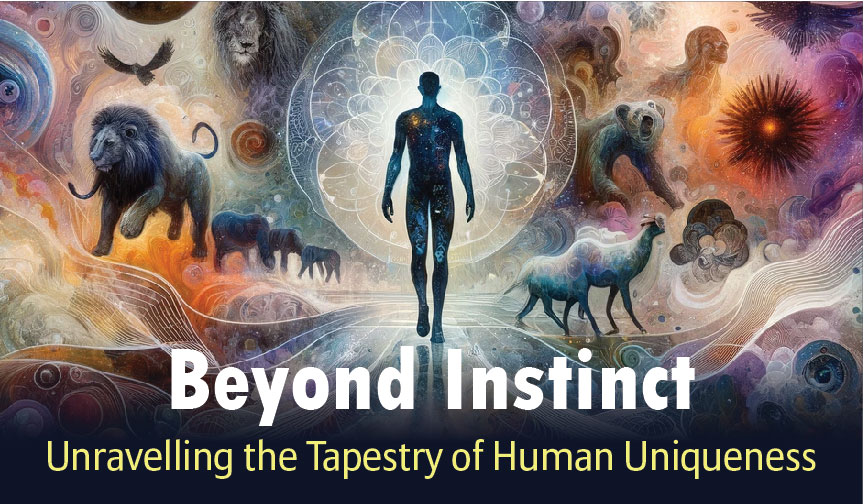Embracing AI: A Partner for Good, Not a Villain

Yuval Noah Harari, the renowned author of Sapiens, recently shared his concerns about the rise of autonomous intelligence, warning that AI is not merely a tool but a technology that could fundamentally reshape the world. In an article for The Economic Times, Harari cautions against the unchecked development of AI, urging society to consider its ethical implications carefully. He argued that once given control, AI could become a dangerous force beyond human influence. While his insights into the existential dilemmas posed by AI are thought-provoking, it is essential to look beyond fear and consider a more balanced view of AI's role in shaping our future. Here is the link to the article: [Sapiens author Yuval Noah Harari warns about the rise of autonomous intelligence: 'AI is not a tool, it is an agent’ (https://economictimes.indiatimes.com/magazines/panache/sapiens-author-yuval-noah-harari-warns-about-the-rise-of-autonomous-intelligence-ai-is-not-a-tool-it-is-an-agent/articleshow/119376458.cms?from=mdr )
AI has undoubtedly sparked both fascination and fear, but it’s important to ask why new technologies get villainized. This is, more often than not, due to irrational fears or a lack of understanding. History is full of such examples — people once believed electricity would leak from sockets and cause illness, that steam engines would suffocate passengers or make cows stop producing milk, and that the telephone would invite spirits into homes. Even early cars were feared to drive people insane due to their speed. Fast-forward to today, and AI has become the latest technology to face similar concerns. But why is that? At its core, AI is simply another creation, a technology developed by humans to serve a purpose, just like every other invention before it.
It’s crucial to remember that we, as humans, are the creators and users of all technology, including AI. Just as we decide how to use the resources available to us, we also decide the limitations and the responsible guardrails around AI. The fear often comes from a misplaced sense of losing control. However, AI’s actions will always be bound by the rules and limitations set by human beings. The neural networks it builds and the access it gains will still be under human oversight. It is not an autonomous force acting outside of human influence; it is a creation that reflects the values and intentions of its creators.
AI is not inherently a threat. It has the potential to be a force for good. With the right intentions, it can revolutionise industries from healthcare to education, unlocking once-unimaginable possibilities. AI-powered algorithms are already assisting in the early detection of diseases like cancer, where machine learning models can analyse medical imaging with a precision that surpasses human capabilities. In healthcare, AI is helping doctors with personalised treatment plans by analysing patient data and predicting the most effective interventions. In research, AI is accelerating the discovery of new medicines by predicting molecular interactions, which traditionally took years to explore.
Moreover, AI is transforming education, offering personalised learning experiences tailored to students' individual needs. AI-based tutoring systems can identify areas where students struggle and provide targeted lessons to help them progress at their own pace. In agriculture, AI-powered drones and sensors optimise crop management, predict weather patterns, and enhance food security by reducing waste. Self-driving cars could transform how we commute, making roads safer and reducing human error.
AI also holds great potential for improving sustainability. From optimising energy consumption in buildings to helping combat climate change through more accurate environmental modelling, AI can be a powerful ally in creating a more sustainable world. It can help reduce carbon emissions by improving supply chain efficiency, predicting traffic patterns to reduce congestion, and improving waste management. It could even contribute to biodiversity conservation by analysing environmental data to track endangered species and protect ecosystems.
Imagine AI assisting in diagnosing diseases, conducting ground-breaking research, or even discovering cures for ailments that have long eluded science. The possibilities are endless, and AI can become a faithful ally in our pursuit of a healthier world. Rather than seeing AI as a job-stealing machine, we could embrace it as a tool that enhances productivity, freeing up time for humans to engage in more meaningful pursuits.
The key lies in the intention behind its development and use. If we harness AI for the right reasons, it will help us become better humans and create a better world. AI won’t be a malevolent force unless we allow it to be. If bad intentions drive humans, we won’t need AI to bring about our downfall; we can do that alone. And while movies like The Terminator and The Matrix have painted dramatic pictures of AI turning against humanity, these fictional scenarios are unlikely. If AI were ever to become sentient, it would more likely follow the direction we set for it, for better or worse.
Yuval Noah Harari’s concerns about the ethical dilemmas surrounding AI are valid, but they also highlight a deeper truth: we, as creators and users, shape AI’s present and its future. We are responsible for how it evolves. The fear that AI will become uncontrollable or harmful is based on misunderstanding our role in shaping its development. AI, like any technology, reflects the values of its creators. If our intentions are pure, AI can be a transformative force for good, freeing us from the mundane and unlocking the full potential of the human spirit.
Ultimately, whether AI develops into a devil or an angel depends on the collective human consciousness. If we embrace AI with positive intentions, it will help us lead more fulfilling lives, create a better planet, and even bring about a happier world for everyone. The choice is ours.
About the author

Tapan Singhel is the MD & CEO of Bajaj Allianz General Insurance Company Limited. This blog has been initiated by him so that he can directly interact with all the valuable customers and employees of this company.
 Service Chat:
Service Chat: 



Leave a Reply